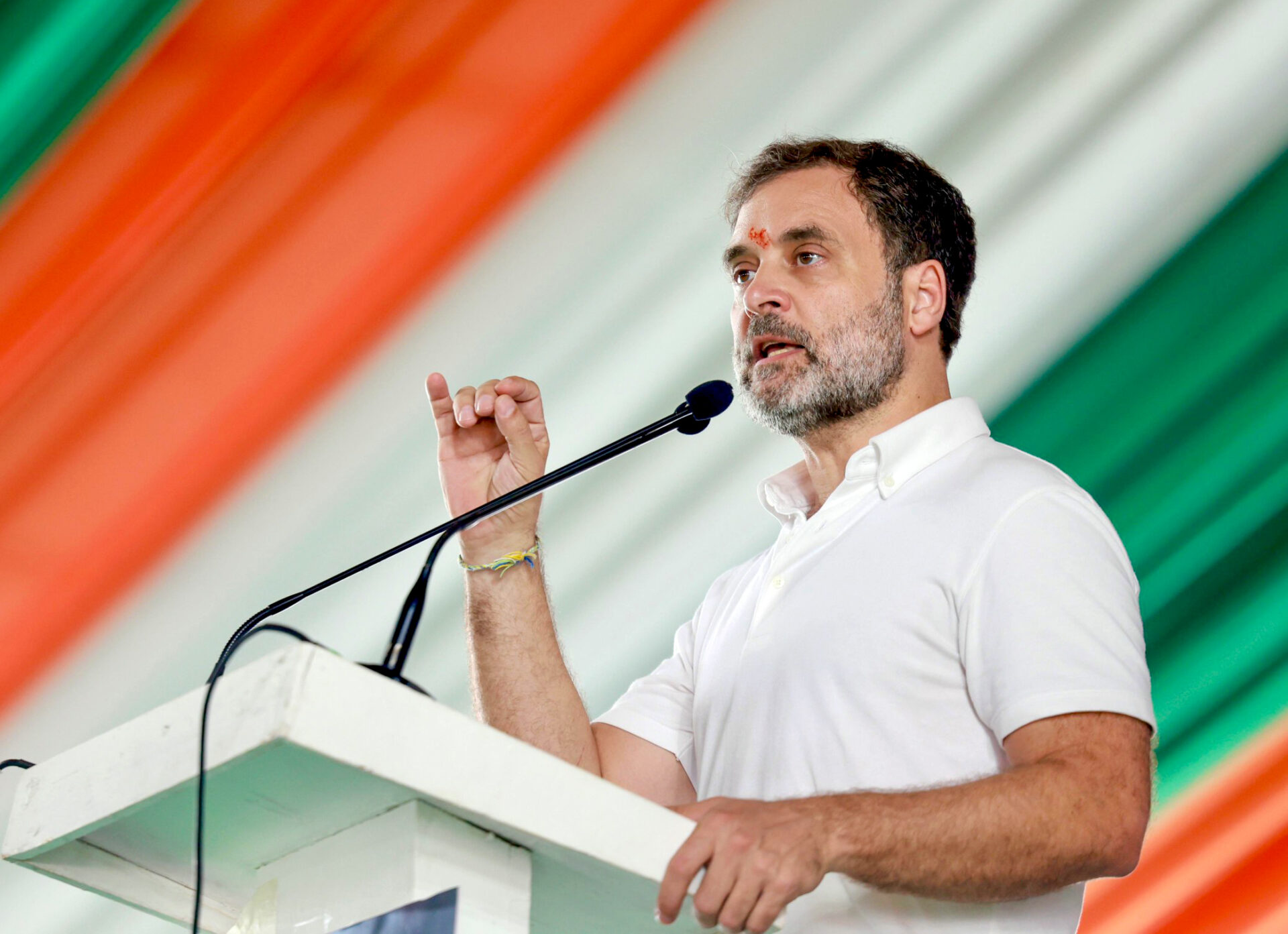Party seems to have sidestepped common man’s issues such as price rise, unemployment, farmers’ problems, etc.
NEW DELHI
Is the Congress embracing Mandal politics once again? Congress’ former president Rahul Gandhi’s sharp and sustained focus on Other Backward Class (OBC) representation in women’s reservation bill served as an indication that the Congress is gradually getting closer to Mandal politics or, for that matter, caste politics.
There is no denying that it was Congress only which had suffered the most due to caste politics triggered by the Mandal commission report in the past. The grand old party was almost wiped out of key states from northern and southern regions of India. Regional parties replaced it, thanks to caste politics.
Parties such as SP, BSP and RJD brought the Congress on the verge of extinction in crucial states like UP and Bihar. Former Prime Minister late V.P. Singh, who was once in the Congress itself, had plunged the country into chaos and violent spells by implementing the Mandal Commission recommendations on OBC reservation. As a result of massive controversy, V.P. Singh had to resign from the PM post.
In fact, Morarji Desai, who became the first non-Congress prime minister, had set up the Mandal Commission in 1979 under the chairmanship of BP Mandal. The commission submitted its report in 1978. The Congress had come to power again by then. But the Congress did not touch this report. The then prime minister Indira Gandhi was assassinated in 1984 after which Rajiv Gandhi became the prime minister. He also stayed away from the issue of reservation.
But later his trusted aide, V.P. Singh left the Congress accusing Rajiv Gandhi of corruption in the Bofors scam
Congress lost polls in 1989. Singh formed Janata Dal. Later, V.P. Singh became the prime minister after the National Front came to power with the support of BJP in 1989. Singh implemented the Mandal Commission report, giving 27% reservation to OBCs in jobs. But it had to be withdrawn following massive protest and violence. The Janata Dal faced a split. But regional parties gained strength from caste politics. Amid all this development, BJP pushed the politics of religion to counter the caste politics. The saffron party succeeded in its mission, as the politics of religion is still prevailing in the country.
Congress then started taking support from regional parties like SP, BSP, DMK, RJD, etc. The grand old party’s bad days began in the 90s. With this began the era of coalition politics. Congress had to pay a heavy price for its reliance on regional parties in the coalition. Some backward castes and forward castes got close to BJP. Remaining castes supported regional parties.
Congress suffered massive defeat in 2014 due to “coalition dharma”. Congress suffered due to corruption of regional parties in the coalition UPA. Meanwhile, the BJP united all castes in the name of nationalism and religion. As a result, BJP got a massive majority under Prime Minister Narendra Modi’s leadership in 2014. PM Modi continued to pursue his own political course in his own trademark style. He expanded his outreach to common people. The issues like toilet construction, Ujjwala Yojana, Surgical strike, abrogation of Article 370, abolition of triple talaq helped him and his party expand support base. But the Congress continued to grapple with its internal problems. As a result, the Congress faced massive defeat again in 2019 too. Congress continued some experiments but Rahul Gandhi was calling the shots as high command. Rahul continues to be in the leadership role even though Mallikarjun Kharge is the Congress president. Rahul Gandhi proceeded on the Bharat Jodo Yatra in an image makeover bid. He raised issues like corruption, price rise, unemployment, farmers problems, etc. He also pitched for the opening of “Mohabbat Ki Dukan”. He connected with the masses. It looked like Congress was making a comeback. The BJP was visibly nervous. But after the end of the yatra, Congress changed its approach. It shifted focus to coalition politics.
It echoed Nitish Kumar’s demand for a caste census in Bihar. It distanced itself from what concerns common man—the real core issues. Congress got involved in the politics of opposition alliance I.N.D.I.A.
At the same time, PM Modi got the women’s reservation bill passed and trapped the Congress into politics around this issue. Rahul Gandhi seems to have fallen into BJP’s political trap. On Friday, Rahul Gandhi was so focused on OBC reservation and caste census. His focus was not on the women’s quota bill which was passed by Parliament. The indications are that Rahul is adamant on making OBC reservation a key agenda of the Congress. The BJP might try to portray Congress’ approach as one seeking to stymie the real objective of the women’s reservation law.
The question can also be raised as to why Congress did not implement the OBC quota system in the panchayats when it was in power. Congress governments in different states are giving reservation to different castes, eyeing their vote bank. In this case, BJP will not hesitate to push the “religious agenda”.
What is the guarantee that Nitish Kumar will continue to be part of the Opposition alliance in future. Rahul Gandhi should shift his focus back on issues such as price rise, unemployment, corruption, farmers and youth problems. He should shun caste politics.

